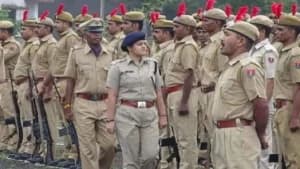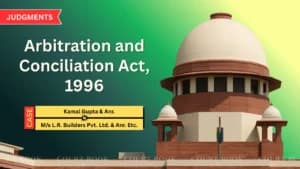The Allahabad High Court recently reinforced procedural standards in criminal trials by asserting that the presence of an Investigating Officer (IO) is not mandatory during the stage of framing charges. The court also expunged adverse remarks made by a trial court judge against a predecessor judicial officer, cautioning against such critiques.
Background of the Case
The case stemmed from a dowry death allegation against Shashi Kant Bajpai, accused under Sections 498-A (cruelty), 304-B (dowry death), 328 (causing hurt by poison), 504 (intentional insult), and 506 (criminal intimidation) of the IPC, along with Sections 3/4 of the Dowry Prohibition Act. The prosecution alleged that Bajpai’s wife died by hanging within seven years of their marriage in 2014, prompting an FIR in 2018.
Read Also:- S.498A IPC | Courts Should Exercise Caution When Handling Family Disputes: Supreme Court
The trial court had rejected Bajpai’s application to summon the IO and present additional evidence, including a suicide note and CCTV footage, during the charge-framing stage. Bajpai challenged this order in the High Court, arguing that the IO’s presence was crucial to address discrepancies in the FSL report and supplementary charge sheet.
Justice Saurabh Lavania, presiding over the case, dismissed Bajpai’s plea, emphasizing the following points:
IO’s Presence Not Required at Charge Framing: The court underscored that the IO’s presence is unnecessary at this stage. It noted:
“The charges have to be framed only on the basis of evidence collected during investigation and submitted by the IO along with the charge sheet.”
The bench clarified that summoning the IO was only meant to address investigative lapses, not to influence charge framing.
Expunging Adverse Remarks Against Judicial Officer: The trial court had criticized a previous presiding officer for summoning the IO. The High Court rebuked this, stating:
“A coordinate bench cannot comment upon the discretion exercised by another bench of the same strength.”
The adverse remarks were expunged, and the current judicial officer was cautioned.
Presumption Under Section 304-B IPC: The court highlighted that the deceased’s death within seven years of marriage, occurring in the applicant’s premises, and its unnatural nature (asphyxia due to hanging) created a presumption under Section 304-B IPC. It added that if evidence later suggests Section 306 (abetment of suicide) applies, the trial court could adjust the charges accordingly.
Relevance of Additional Evidence: While Bajpai argued that the suicide note and CCTV footage were critical, the court ruled these could be presented during the trial. It stressed that charge framing relies solely on the prosecution’s evidence at this stage.










